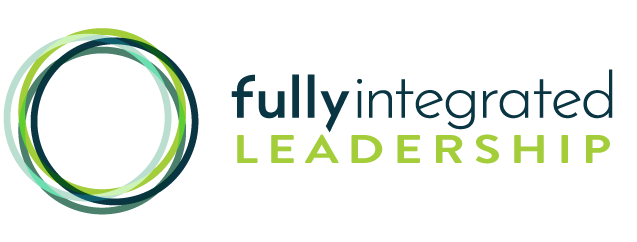Develop “Meta-Awareness”

One of the major concepts we work on with our leaders at Fully Integrated is self-awareness/self-reflection. Why? Well, there are a few reasons. First, in our experience working with the top complex change leaders (those scoring highest on our quantitative assessments of VUCA skills) the number one practice they point to as reason for their success is self-awareness/self-reflection. Second, our study of neuroscience shows that when we practice self-awareness/self-reflection regularly, we arrest the “mental shortcuts” that our minds like to make when dealing in VUCA conditions. We learn to recognize and overcome common cognitive biases that can really trip us up in leading ourselves and others. In essence, we re-train ourselves to use more of our critical thinking/analytical prefrontal cortex of the brain instead of the more ancient emotional and reactive parts of the brain. Finally, we find that people with a regular self-awareness/self-reflection practice have a higher level of emotional intelligence, and this is now one of the single greatest predictors of a leader’s success leading others in VUCA conditions. When we are more aware of our emotions, we can make conscious choices rather than having quick emotional reactions to people and situations, particularly ones that are difficult or challenging. This creates a culture where trust is high, respectable conflict is encouraged, and people hold one another accountable to a set of behaviors that keep teams humming along.
At Fully Integrated, we train leaders to become “meta-aware” which means we train them to become aware of their awareness. Rather than being subject to their thoughts, emotions, and bodily sensations, we teach them to make these object so they can make a choice about how to behave in a given situation. We like to think of this as “stepping up on the balcony” to be able observe ourselves, observe others, and observe the context in which we operate. This meta-awareness leads to more choices, more perspectives being considered, and better solutions to the dilemmas we face in work and in life.
The results? More engaged employees. Recent studies show that more than 50% of American workers are disengaged at work, and the number one reason they cite is poor leadership. When we develop meta-awareness, we begin to understand the things we are doing that lead to disengagement, and we create conditions where people want to come to work and thrive. Another result is that we create a collective culture of accountability where people want to actively manage the team/organizational culture to align with the results they are trying to achieve. A recent Forbes survey showed that companies that focused on culture saw a 4x increase in revenue over previous years and had a 30% greater customer satisfaction than companies that do not.
